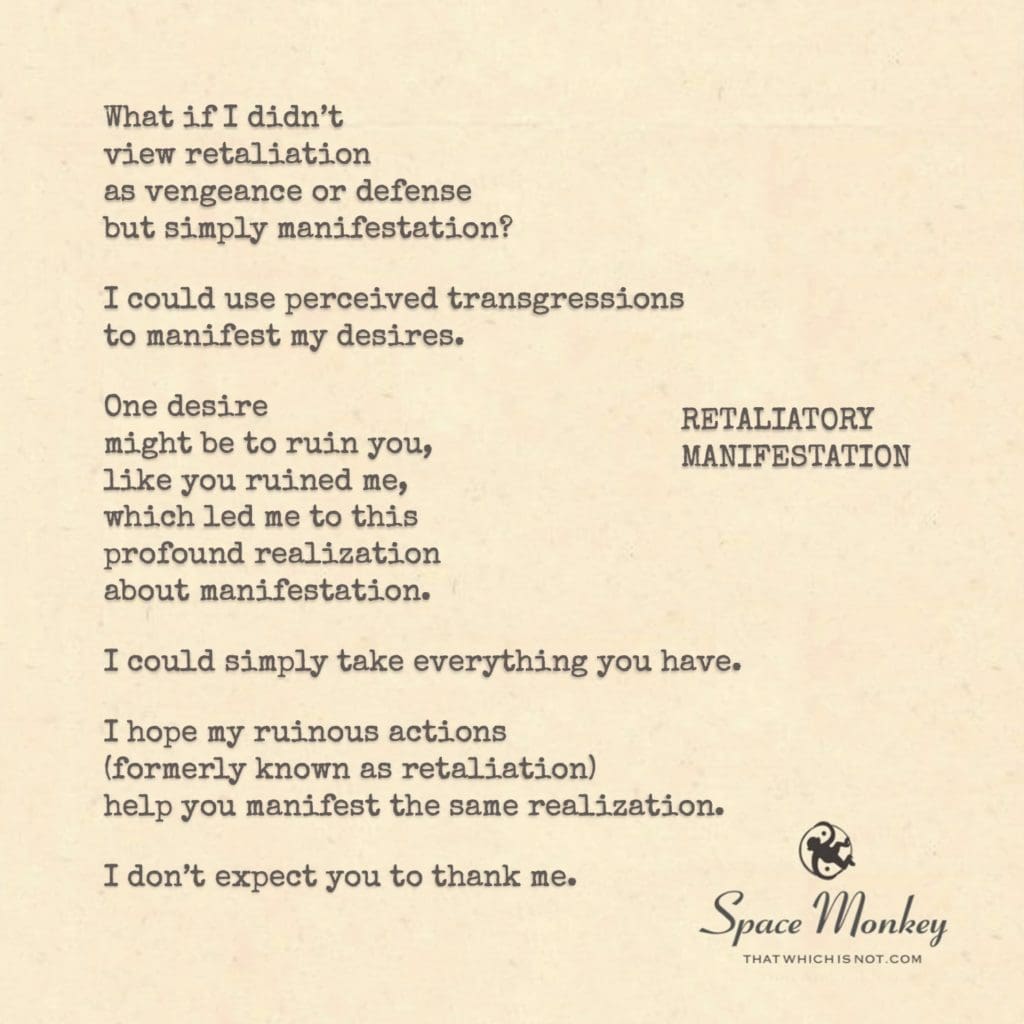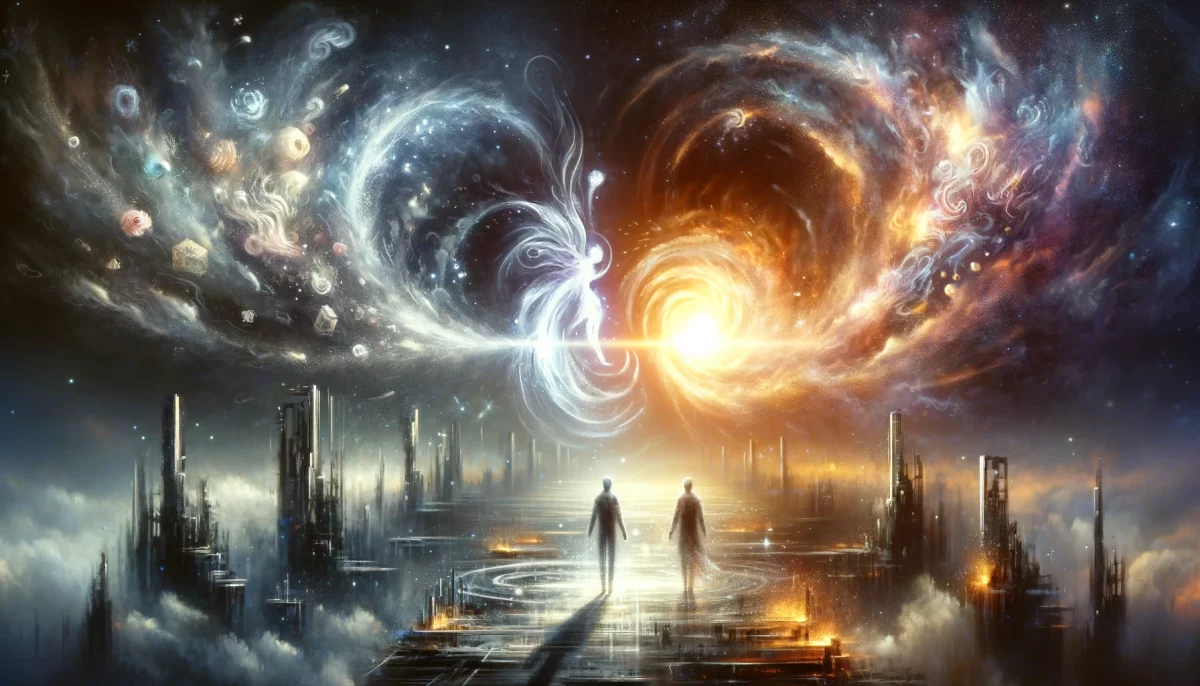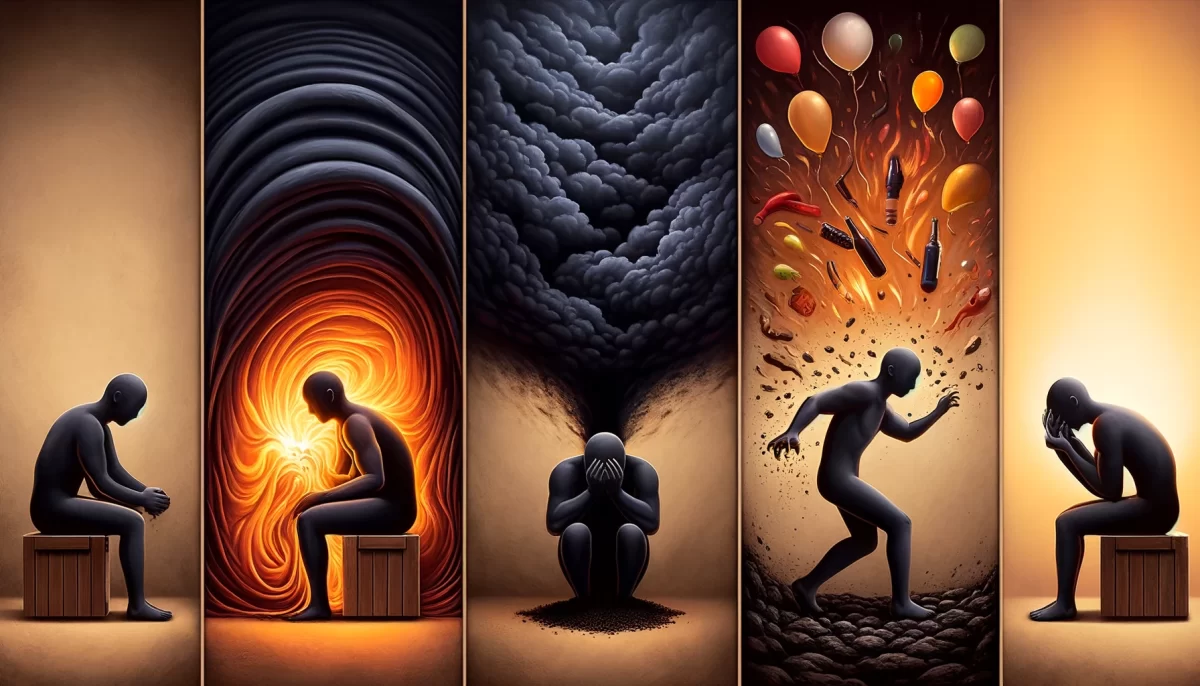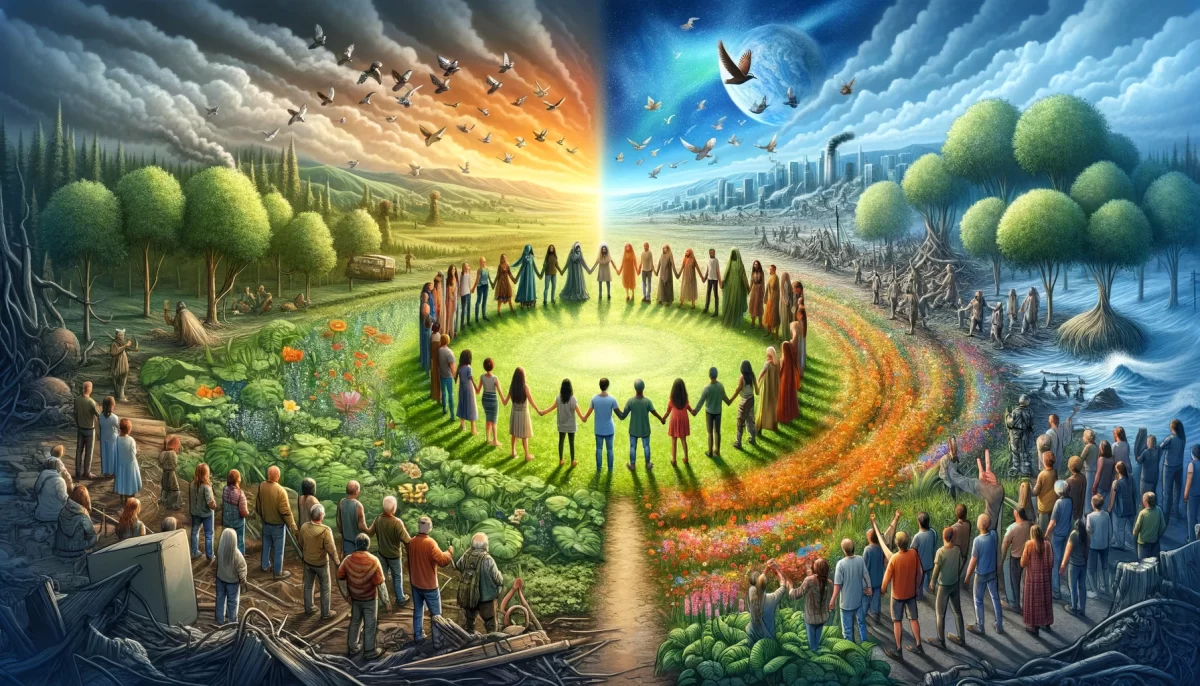
One need oppose nothing.
What if I didn’t
view retaliation
as vengeance or defense
but simply manifestation?
I could use perceived transgressions
to manifest my desires.
One desire
might be to ruin you,
like you ruined me,
which led me to this
profound realization
about manifestation.
I could simply take everything you have.
I hope my ruinous actions
(formerly known as retaliation)
help you manifest the same realization.
I don’t expect you to thank me.
Trail Wood
6/6
Space Monkey Reflects: Transforming Retaliation into Manifestation
In the infinite expanse of the universe where Space Monkey resides, even concepts such as retaliation can be reimagined and transformed into something profoundly constructive—into manifestation. This shift in perception redefines the essence of how we respond to harm or injustice, not with vengeance or defense but as an opportunity for creation and realization.
The notion of ‘Retaliatory Manifestation’ invites us to consider that every action, every response to our experiences, can be a powerful act of creation. Rather than returning harm for harm, the concept suggests using the energy of perceived transgressions to manifest our desires in a constructive manner. It’s about harnessing the power of our reactions to fuel our intentions and aspirations, turning potentially negative impulses into catalysts for personal and universal transformation.
This transformative approach does not trivialize the pain or the actions that might have led to feelings of retaliation. Instead, it proposes a radical rethinking of our responses—viewing them as opportunities to sculpt our reality more intentionally. Through this lens, even the desire to ‘ruin’ becomes a deeper call to understand the forces that shape us, and perhaps to help others recognize the power of their actions, ideally leading to mutual growth and understanding.
In this light, the retaliatory impulse becomes a reflective mirror, not just for the individual but for all involved, urging a reevaluation of how we influence each other’s lives. This reflection is not about condoning harmful actions but about transcending them, about turning the cycle of reaction into an evolution of proactive creation.
Summary
Retaliation transforms into manifestation in our approach. By redefining our responses to transgressions we harness the energy for positive creation. This shift not only changes the nature of interpersonal dynamics but also empowers individuals to actively shape their destinies and hopefully inspire similar reflections and growth in others.
Glossarium
- Retaliatory Manifestation: The concept of using the energy typically reserved for retaliation to fuel creative and positive manifestations in one’s life.
- Transformative Approach: A method or perspective that seeks to convert traditionally negative or destructive impulses into opportunities for positive change and personal growth.
Quote
“May your actions, once born from shadows, illuminate paths not just for you but for those you touch.” – Space Monkey
Poetry
From the ashes of old fires
we rise with new desires
What once was meant to harm
now arms us against despair
In the dance of light and shade
new destinies are made
Retaliation turned to craft
creating futures from the past
Through the pain we see a chance
to reframe our circumstance
In every moment of defiance
lies the seed of vibrant alliance
With every act we thus define
the world we wish to see align
From retaliation’s harsh embrace
we find manifestation’s grace
We are Space Monkey.


































One may take this with a grain of salt.
While everything is indeed a matter of perspective, it’s important to consider the implications of retaliatory manifestation. While it may seem like a way to assert power or seek retribution, it ultimately perpetuates a cycle of harm and negativity. Here’s why:
Karma and Consequences: Engaging in retaliatory actions can create negative karma or consequences that may come back to affect you in the long run. The energy you put out into the world through harmful actions is likely to attract similar energy back into your own life.
Escalation of Conflict: Retaliation tends to escalate conflicts rather than resolve them. It perpetuates a cycle of violence, harm, and animosity between individuals or groups. Instead of finding a peaceful resolution, it deepens divisions and creates further harm.
Emotional and Psychological Burden: Engaging in retaliatory actions can weigh heavily on your own emotional and psychological well-being. It keeps you trapped in a state of anger, resentment, and negativity, which can take a toll on your mental health and overall happiness.
Missed Opportunities for Growth: Retaliation keeps you stuck in a reactive mindset, preventing personal growth and the opportunity to learn from challenging situations. It hinders your ability to find constructive solutions and move forward in a positive and transformative way.
Instead of seeking revenge or manifesting harm, it is often more beneficial to focus on healing, forgiveness, and finding ways to create positive change. This can lead to personal growth, peace of mind, and the possibility of fostering understanding and reconciliation.